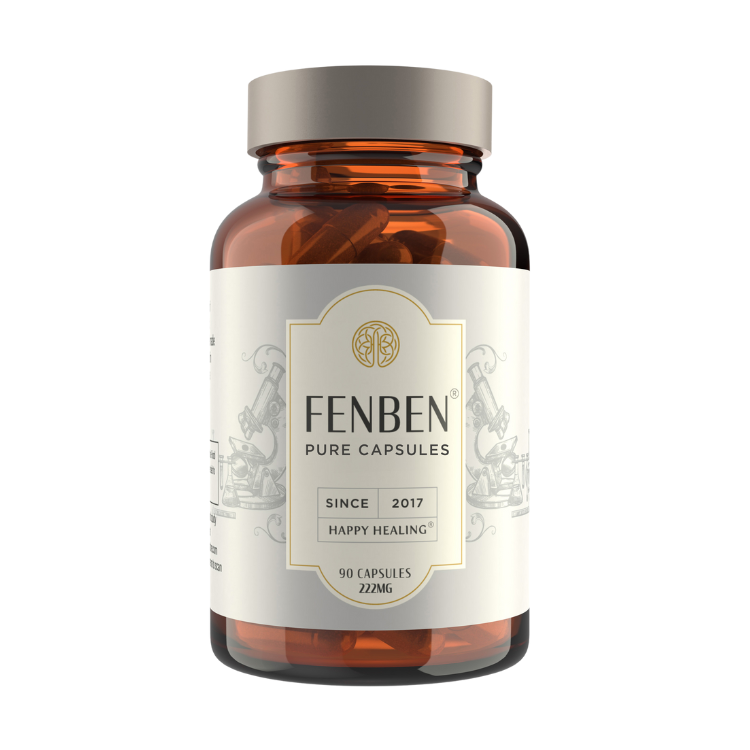Recognizing the Perks and Uses of Fenbendazole in Veterinary Medication
Fenbendazole has established itself as a crucial anthelmintic in veterinary medication. Its capacity to target numerous parasitical infections makes it a useful tool for veterinarians. The drug's mechanism interrupts vital cellular processes in bloodsuckers, causing efficient therapy results. Its safety and security account differs between types, demanding mindful factor to consider in its use (fenbendazole). Recognizing these characteristics can clarify fenbendazole's wider effects in veterinary treatment and ongoing study right into its potential past typical applications
Device of Activity of Fenbendazole

Usual Parasitical Infections Treated With Fenbendazole
A selection of parasitic infections are effectively treated with fenbendazole, making it a functional alternative in vet medicine. This anthelmintic representative is specifically reliable against nematodes, including roundworms and hookworms, which generally affect pet dogs and pet cats. It is likewise utilized for the treatment of cestodes, such as tapeworms, providing a broad range of activity versus both kinds of intestinal parasites. In addition, fenbendazole is beneficial in managing infections created by protozoa, specifically Giardia, which can result in intestinal distress in pets. Its efficiency includes treating specific lungworms in canines and felines, resolving breathing health problems connected to these parasites. On the whole, fenbendazole's capability to target numerous parasitic species makes it a beneficial tool in vet method, making certain the health and wellness of family pets influenced by these usual infections.
Security and Efficacy in Different Pet Variety
The safety and security and efficiency of fenbendazole vary among various pet types, emphasizing the significance of species-specific factors to consider in veterinary medication. In pooches, fenbendazole is generally well-tolerated and effective against a series of stomach bloodsuckers, consisting of roundworms and hookworms. For felines, nonetheless, its use is less common and might call for mindful application because of prospective adverse responses.
In animals, such as livestock and sheep, fenbendazole demonstrates effectiveness against different endoparasites, adding to improved health and wellness and efficiency. The pharmacokinetics and possible side impacts can differ markedly in between varieties, requiring careful assessment by vets.
Horses likewise react favorably to fenbendazole, specifically for treating strongyles and ascarids, though dose and administration courses have to be tailored to their special physiology. Subsequently, comprehending these differences is important for optimizing treatment results and guaranteeing animal well-being throughout diverse types.
Administration and Dosage Standards
Appropriate management and dose standards are vital for making best use of the therapeutic impacts of fenbendazole while decreasing potential negative effects. The dose normally varies depending upon the varieties being treated, the details condition, and the formula of fenbendazole used. fenbendazole capsules. For dogs and pet cats, a typical dosage is 50 mg/kg body weight, administered as soon check this site out as daily for 3 consecutive days, but veterinarians may readjust this based on individual health assessments
It is very important to provide fenbendazole with food to improve absorption and lessen intestinal distress. The medicine is available in numerous types, consisting of granules and paste, permitting flexible administration choices. Monitoring the pet's action throughout and after treatment is a good look at this web-site idea to verify efficacy and safety and security. Furthermore, veterinary guidance is vital to identify the proper period of therapy based upon the kind of parasitic infection being dealt with, guaranteeing perfect outcomes for the pet's health and wellness.
Future Viewpoints and Research on Fenbendazole
Research on fenbendazole continues to progress, concentrating on its potential applications beyond traditional antiparasitic usages. Recent studies have explored its effectiveness in treating different kinds of cancer, especially in veterinary oncology. Initial data recommend that fenbendazole may hinder the growth of growth cells and enhance the results of various other chemotherapeutic agents.
Furthermore, scientists are exploring its function in taking care of stomach disorders in pets, highlighting its anti-inflammatory properties. The versatility of fenbendazole for different species increases questions about its safety profiles and perfect dosing programs in diverse populations.
As view passion grows, there is a need for comprehensive professional tests to develop evidence-based guidelines for these unique applications. Future research study may additionally investigate the mechanisms behind fenbendazole's results, possibly leading the method for cutting-edge restorative strategies in veterinary medicine. The continuous exploration of fenbendazole might greatly boost treatment alternatives for numerous veterinary problems.

Regularly Asked Inquiries
Is Fenbendazole Safe for Pregnant Animals?
The safety and security of fenbendazole for pregnant animals continues to be unsure. While some research studies suggest minimal threat, veterinarians usually recommend care and commonly advise versus its usage while pregnant unless the advantages plainly outweigh prospective dangers.
Can Fenbendazole Be Utilized in Livestock?
Fenbendazole is typically utilized in animals to deal with numerous parasitical infections. fenbendazole 222. Its effectiveness against gastrointestinal worms makes it an important anthelmintic, contributing to improved health and efficiency in animals increased for food and fiber
What Are the Negative Effects of Fenbendazole?

The adverse effects of fenbendazole may include intestinal disruptions, lethargy, and allergies. In uncommon situations, more extreme responses could occur, demanding cautious tracking and appointment with a veterinarian during treatment.
How Does Fenbendazole Compare to Other Dewormers?
Fenbendazole supplies broad-spectrum effectiveness against numerous parasites, typically comparing positively to various other dewormers. Its special mechanism targets various life stages, making it efficient, while generally providing a beneficial safety and security profile contrasted to options readily available on the market.
Can Fenbendazole Be Made Use Of for Treating Cancer Cells in Family Pets?
The possibility of fenbendazole in dealing with cancer in animals has amassed rate of interest. Initial researches suggest it might hinder cancer cell development, yet even more research study is needed to confirm its efficacy and safety and security in vet oncology.